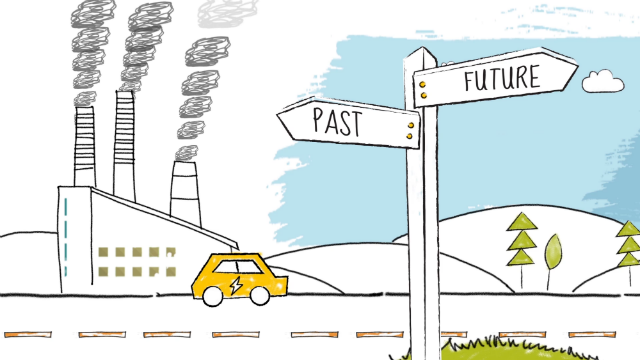
Long story short.
The New Zealand Productivity Commission was established in 2011 to provide advice to the Government on improving productivity in a way that is directed to supporting the overall wellbeing of New Zealanders, having regard to a wide range of communities of interest and population groups in New Zealand society.
Their latest – and biggest – task has been to identify options for how New Zealand can reduce its domestic greenhouse gas emissions through a transition to a low-emissions economy, while at the same time continuing to grow income and wellbeing.
Perhaps unsurprisingly, the final report, released this morning, runs to a whopping 621 pages, makes 173 findings and 78 recommendations. It’s an explicit exposition of what it would take to really put your money where your mouth is.
The original definition of sustainable development – coined by the Bruntland report in the 1987 Our Common Futures report – is the kind of development that meets the needs of the present without compromising the ability of future generations to meet their own needs.
The tireless, diligent and cerebral Murray Sherwin and his team have done a courageous and comprehensive job in defining what such development could look like in reality. As they say themselves, this question is the most profound and far-reaching the Commission could be tasked with.
So, here’s the thing. We’re in far more dire straits than we thought we were when it comes to the catastrophic climatic changes affecting our planet. All of the modelling that predicts how bad the climate will get has already been proven to be miles off course – it’s far worse than we thought, and we have no idea how bad it’ll get before serious weather systems play catch-up and things tip into the unmanageable. And we all, because we’re human, keep on keeping on and try not to think about leaving an uninhabitable planet for our kids.
The report however, concludes, hopefully, that New Zealand can make the transition into a low emissions economy, while at the same time growing incomes and wellbeing. And, that it will take guts. Guts from the government, from businesses, and from all of us kiwis – up to and well beyond a 2050 target.
The report calls in particular for three pretty bold things to happen in order to achieve this:
- We stop burning fossil fuels and switch to renewable electricity
- We plant a lot of new trees
- We move away from such intensive farming.
The 78 recommendations include stuff like increasing renewable energy generation, reducing fossil-fueled generation, and significantly expanding forest planting.
I have to applaud the report in its hopeful and positive notes, throughout, about the advantage in innovating and supporting future-focused industry for New Zealand. I couldn’t agree more that New Zealand is particularly well-positioned to respond to the low-emissions challenge by expanding forest plantings – we’re good at it, we need it, and we have the land for it.
It’s also heartening to see the calls for clear and stable climate change policies, and substantial investment in innovation. Z Energy’s own submission to the Productivity Commission calls for enduring and long-term political accord to encourage and stimulate alternative energy investment, and a meaningful price on carbon that will engender real behavioural change.
This ‘meaningful price on carbon’, according to the findings of the report, would need to be in the realm of $150-$250 a tonne by 2050 in order to meet our Paris target. We’re up for that. As the report indicates, we either face that cost now, and innovate into the opportunity, or we face much, much higher costs further up the road. As the Westpac report released earlier this year found, the New Zealand economy could benefit by $30 billion by 2050 if government and business take early action on climate change.
Long story short: – consume less stuff that comes out of the planet; plant more trees, suck up more carbon, and farm more considerately. Spend money on the stuff that will get us more jobs in the longer term, and keep our, and everyone else’s home around for the long term. It’s entirely doable, if we have the guts for it. Just ask Murray.
Business Development, Aerospace Consultant - USA/Oceania
5yA noticeable absence of people . . .
Energy lawyer and IPCC climate expert reviewer
5yThe latest IPCC Report would appear to disagree with the catastrophic outcomes you consider are already impacting us. Read chapter 2. They conclude there is low confidence of any catastrophic outcomes this century, low confidence of changes in intensity of cyclones, droughts and other indicators. Global temps are observed to be tracking the very lowest of the models with current global averages matching those of 1998 (HadCrut4). calm it down Z.
Team Leader, Tax and Revenue Specialist contracted to AARC Consultancy of Dublin, Ireland
5yWill our Government and Opposition parties, our businesses and our people be willing to commit to the action needed to achieve a sustainable future?